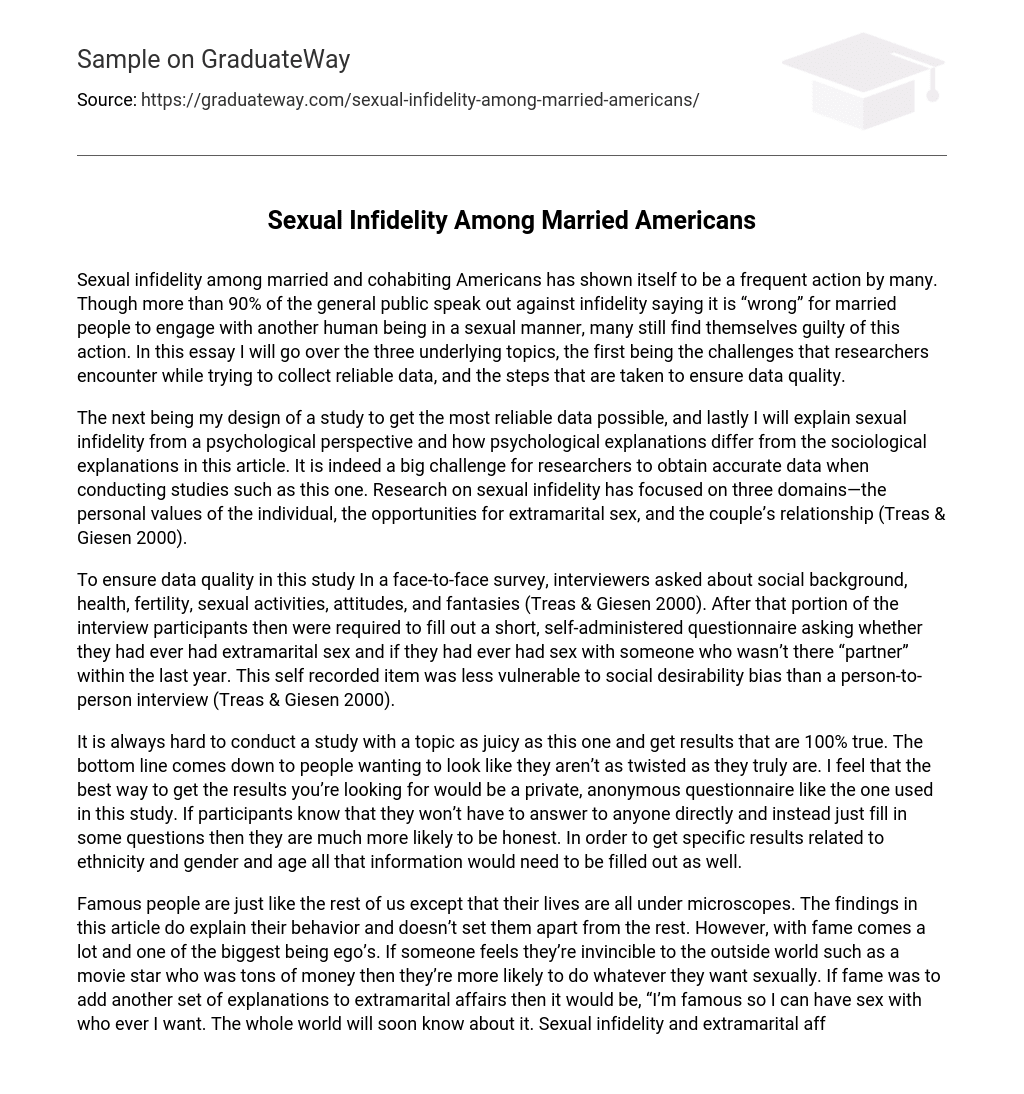Despite the fact that more than 90% of the general public views engaging in sexual activities with someone other than their spouse as morally unacceptable, sexual infidelity remains common among married and cohabiting Americans. This essay aims to examine the challenges researchers encounter when collecting precise data on this subject and the measures implemented to uphold data integrity.
This article will focus on designing a study to gather the most reliable data possible. Additionally, it will examine the psychological perspective on sexual infidelity and compare it to sociological explanations. Researchers face challenges in studying sexual infidelity due to the need for accurate data. Previous research has primarily looked at personal values, opportunities for extramarital sex, and dynamics within relationships (Treas & Giesen 2000).
The objective of the study was to ensure data quality through face-to-face interviews. The interviewers asked participants about various aspects, including social background, health, fertility, sexual activities, attitudes, and fantasies (Treas & Giesen 2000). After the interview, participants received a self-administered questionnaire aiming to determine if they had engaged in extramarital sex or recent sexual involvement with someone other than their partner. This approach minimized the impact of social desirability bias compared to traditional person-to-person interviews (Treas & Giesen 2000).
Conducting a study on an interesting subject and obtaining precise results is challenging. In the end, individuals tend to desire appearing less abnormal than they truly are. To attain optimal outcomes, I believe employing a confidential and anonymous survey, similar to the one utilized in this study, is the most efficacious method. When participants acknowledge that they will not be held responsible directly and solely have to respond to a series of inquiries, they are more inclined to be truthful. Additionally, in order to gather particular findings regarding ethnicity, gender, and age, all participants must furnish this information.
Although famous individuals bear resemblances to ordinary people, the public constantly scrutinizes them. The examination presented in this article demonstrates that their conduct is essentially no different from others. Nevertheless, fame brings a multitude of aspects, notably including inflated egos. When an individual feels invincible due to their wealth and status—such as a movie star with considerable financial resources—they are more inclined to partake in sexually unrestricted behavior. If we were to attribute another factor to extramarital affairs within the realm of fame, it would be the belief that their renown grants them the liberty to engage in sexual activities with anyone they desire.
The prevalence of sexual infidelity and extramarital affairs is widely known and widespread globally, reflecting the unfortunate reality in our society. These acts can occur either unintentionally, as a result of impaired judgment, or intentionally to upset their partners. In the United States, the current divorce rate exceeds 50%, showing no signs of decline, especially considering the findings presented in this article. People naturally desire novelty and excitement, so when an opportunity for sexual fulfillment arises that aligns with these desires, they are highly motivated to take advantage of it.





